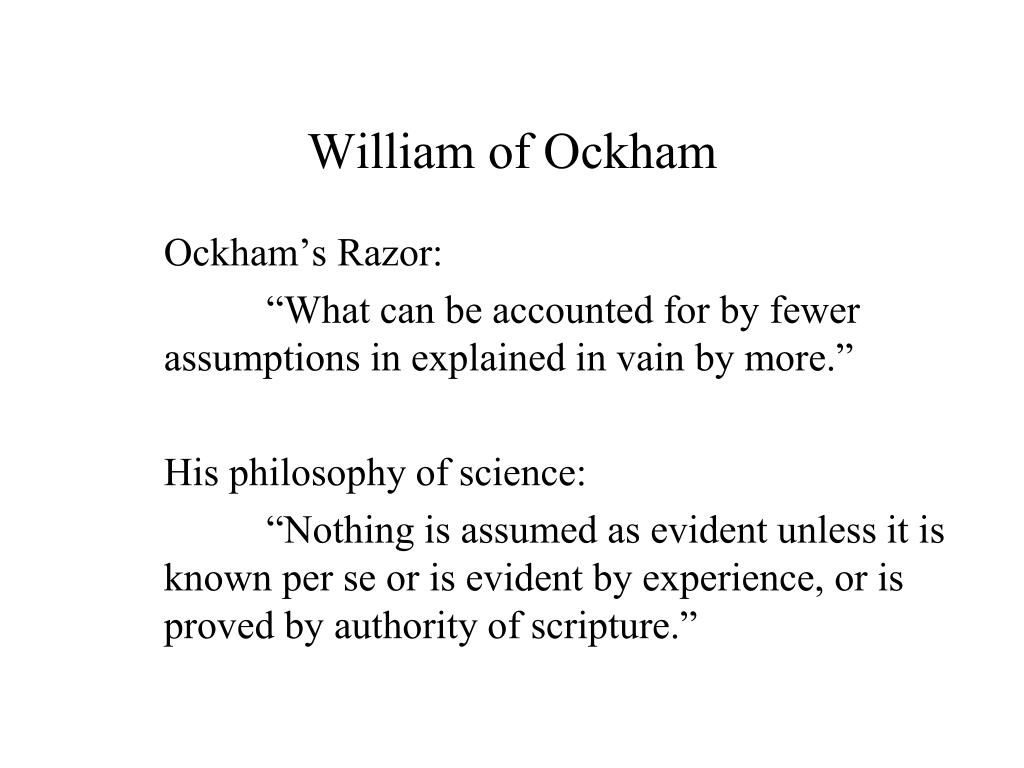

Maurer was a close colleague (and admirer) of Etienne Gilson his synthetic approach and disposition of topics, indeed, is rather "Gilsonian." As the title of his book suggests, he interprets William's philosophy by means of a reductio ad principia, that is, in terms of key principles that are operative throughout his treatments of medieval topics and questions. Although many in the fifteenth century (guided by Albert's usage) imposed the term nomina/es on 475 476 BOOK REVIEWS William and followers of the "modern way," they understood well that he focused his analysis on concepts and their "mental language" for them, as for Maurer, the fundamental issue was not the relation between concepts and spoken or written language (the conventional usage of which the requirements of "mental language," de virtute sermonis, must sometimes disrupt), but the relation between thinking and extramental reality. William did not call himself a "nominalist" or "conceptualist." Before the fact, Albert the Great's definition of the term 'nominalist' "perfectly fits Ockham's doctrine" (63). Maurer uses those terms sparingly and interchangeably. Nor does he indulge the habit of labeling William's thought "nominalist" or "conceptualist" according to some a-historical typology of possible positions. The reader will be thankful that he has not cluttered his pages with recitations and refutations of contemporary analyses that oppose his own rather, he indicates the disagreements in the notes, allowing readers to pursue them as they will. In his notes he generously cites the contemporary literature on William's thought and graciously acknowledges those interpretations from which his own has benefitted. That assessment has now been provided by Armand Maurer in his synthetic study of William's philosophy "in the light of its principles." Maurer's book displays the lucidity of interpretation and style that characterizes all of his scholarly writings on medieval philosophy. After all of the analyses of arguments and single doctrines, the time was ripe for a disinterested, comprehensive assessment of William's thought and its unifying insights. By the end of the century, the original fervor had cooled somewhat. The abundant academic literature has sufficed to establish William as a "major figure" in medieval philosophy, worthy of being called "William Ockham" by analogy with "Thomas Aquinas" (will "Henry Ghent" be next?). Ideologically, it was fueled by the perception that William's thought, more than that of other medieval thinkers, approximates the linguistic, analytic mode of philosophy that prevails in most American and British universities, and so just might convince contemporary philosophers that medieval philosophy offers something worthwhile.

Bonaventure, N.Y.: Franciscan Institute, 1967-88). That enthusiasm was made possible by a new critical edition of William's philosophical and theological writings (St. In the last three decades of the twentieth century, students of medieval philosophy witnessed or partook in a widespread enthusiasm for the thought of William of Ockham.

In lieu of an abstract, here is a brief excerpt of the content:īOOK REVIEWS The Philosophy ofWilliam ofOckham in the Light ofIts Principles.


 0 kommentar(er)
0 kommentar(er)
